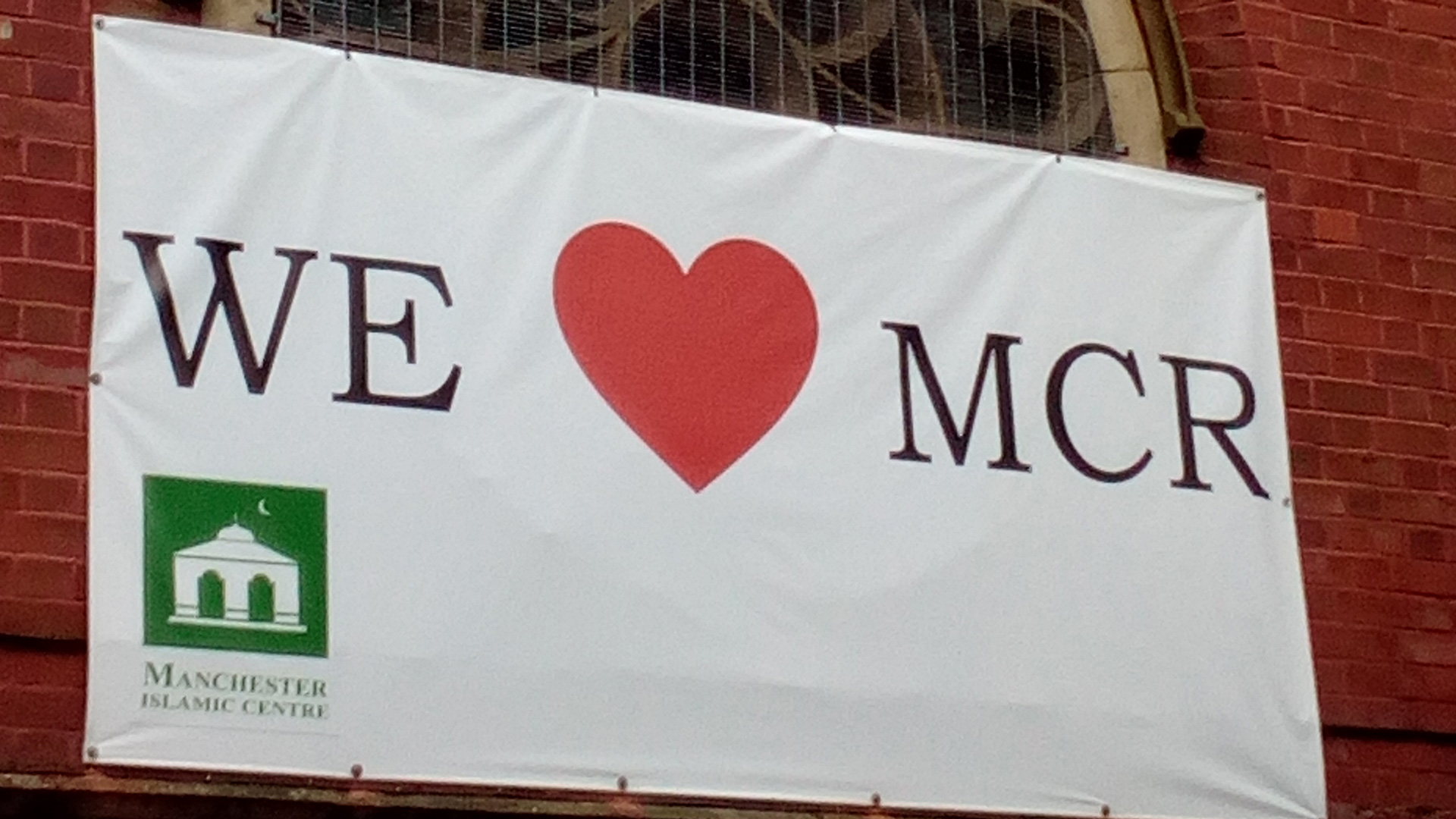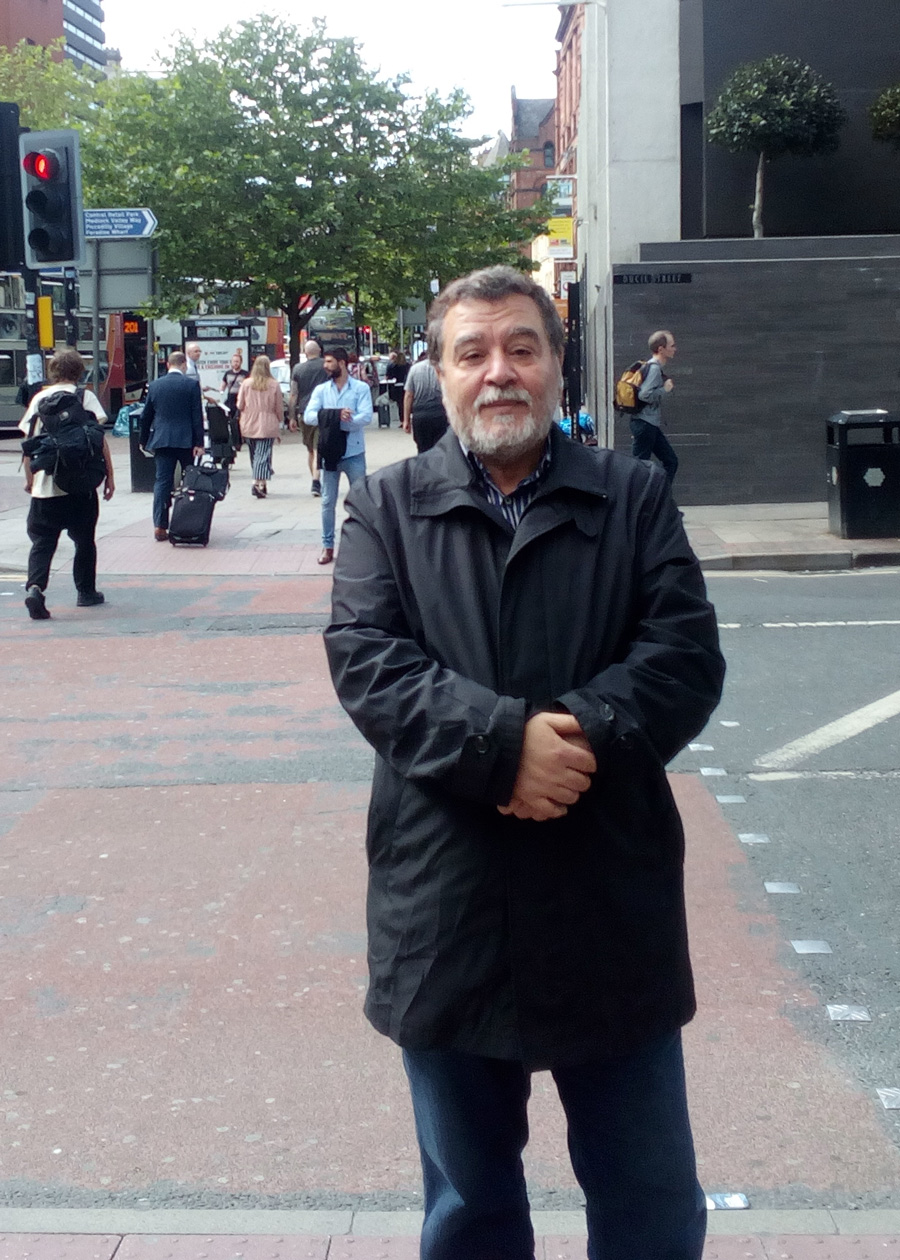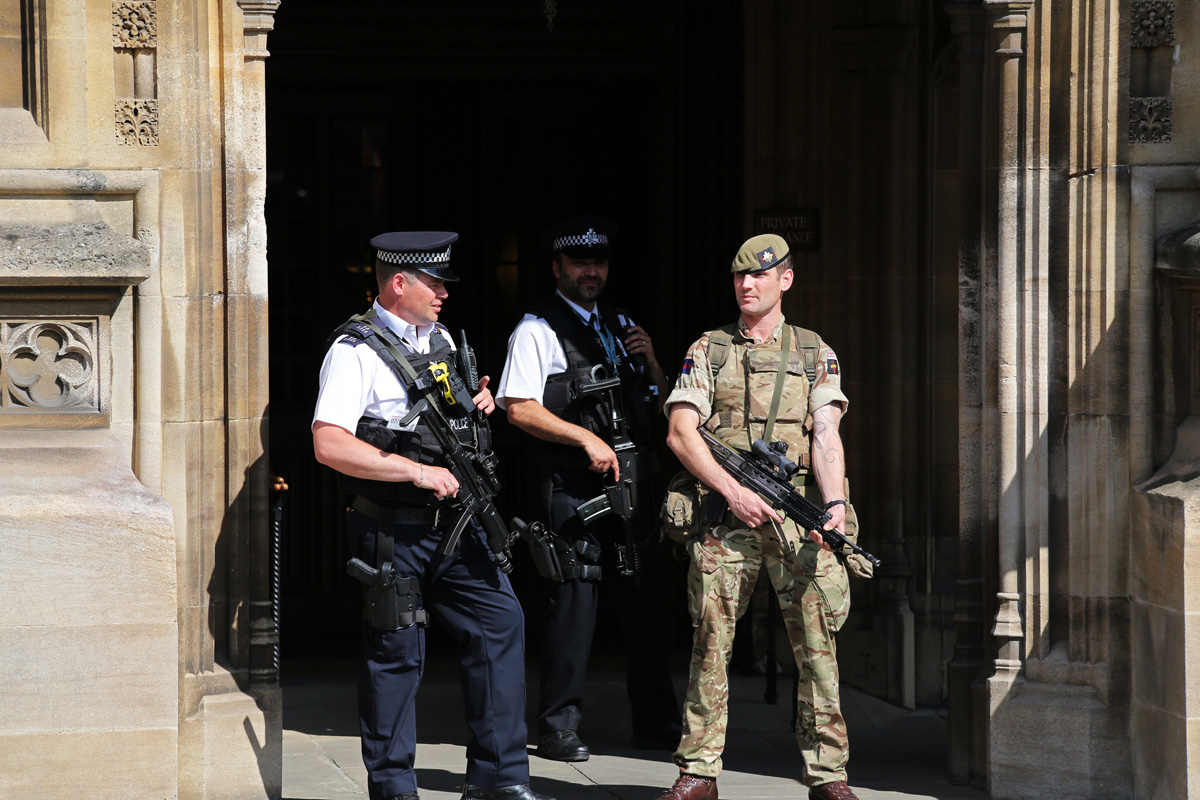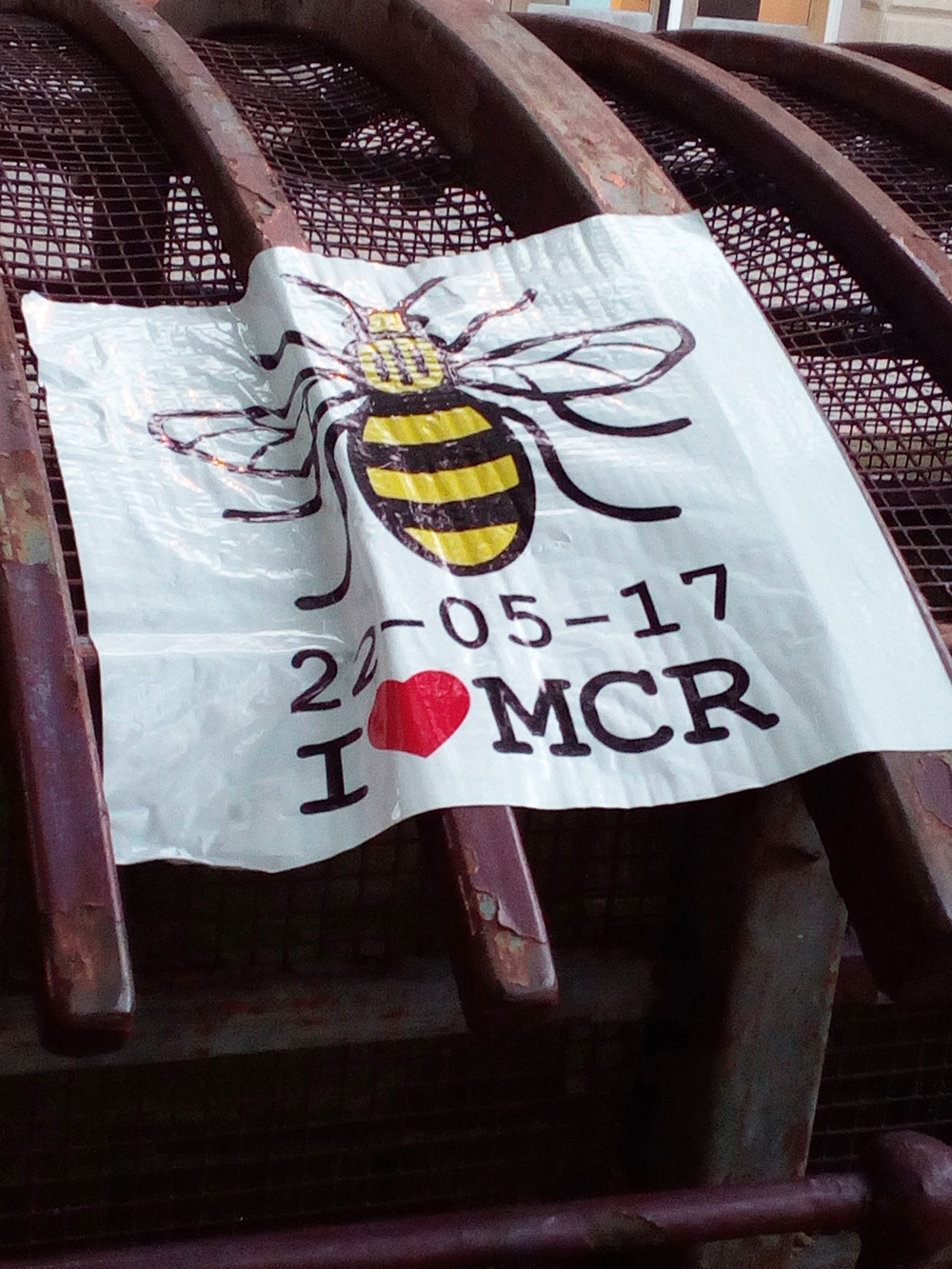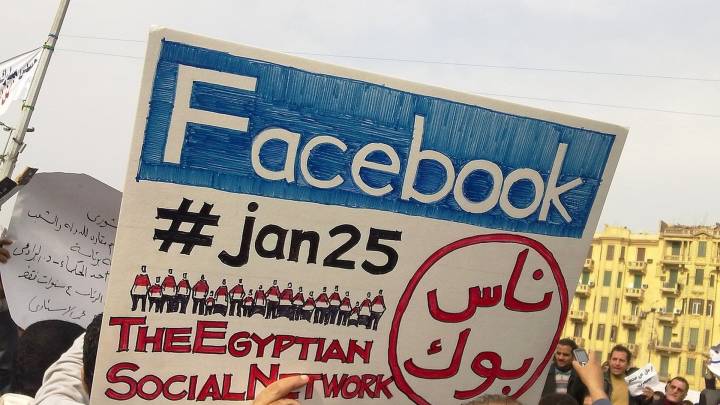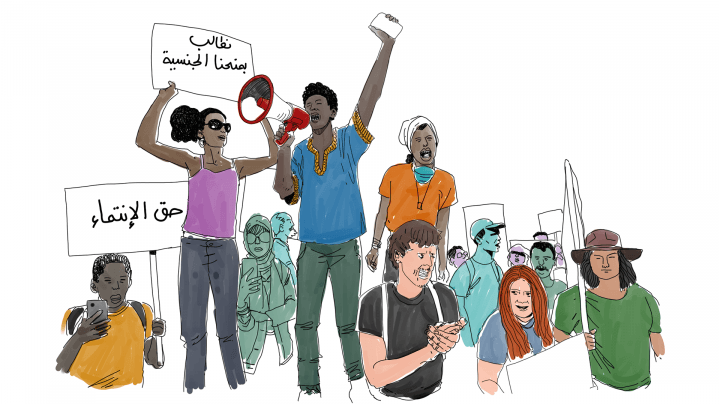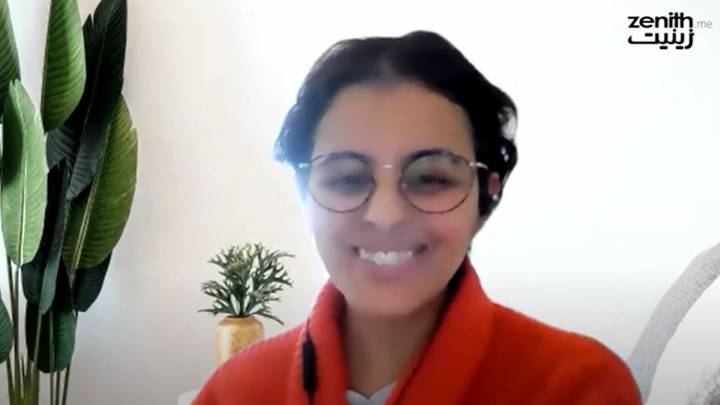In the aftermath of the bombing at the Manchester Arena in May, Libyans in the city have stood together with the wider community in the face of terrorism, amid anti-Muslim hate crime.
“I was just shocked. It was awful, irrespective of the fact that the bomber was Libyan. I didn’t expect something like that to happen in this city,” says Sarah, a Manchester native of Libyan origin, recalling her reaction to the suicide bombing at the Ariana Grande concert in May that killed 22 people – many of them young children – and injured scores more.
After the bombing, Sarah – she asked that her last name not be published – scrambled to learn why the attack had happened, and if there was any connection to Libya. Manchester is home to a sizeable population of Libyans, with as many as 10,000 said to live in the city in the northwest of England, the largest expat Libyan community apart from Tunisia.
“It’s like we have to pay for Salman’s actions, though we haven’t got anything to do with him. What makes us responsible?”
The bomber, Salman Abedi, was a 22-year-old Libyan resident of Manchester. He had reportedly fought against Gaddafi’s forces in 2011, while just a teenager, and his father, Ramadan Abedi, was a member of the Libyan Islamic Fighting Group (LIFG), a group that opposed Gaddafi and which at times has had links to al-Qaeda. The younger Abedi spent time in Libya just weeks before carrying out the terror attack.
The emergence of the Libyan connection was a cruel blow, says Sarah, who works as a dentist. “As Muslims, we suffer a double hit from any act of terror: we can get killed like anybody, then we can be penalised for the act.”
Sarah’s reaction is not unique. Sitting in a café in the city centre, Mohamed Abdul Malek, an imam and trustee of the Muslim Youth Foundation (MYF), a mosque and community centre in Manchester, talks about his memory of the night of the bombing. His face wears an incredulous expression, as if he still cannot believe it happened.
“The attack hurt me on three levels: as a Mancunian, a Muslim and a Libyan,” says Malek, who moved to the city in the 1990s from Misurata in western Libya. “I felt it was a bad introduction of the Libyan community to Manchester, and I was worried there would be wider repercussions for Muslims.”
His fears were not unfounded. Less than a month after the Arena suicide bombing, a man drove a van into a group of worshippers outside London’s Finsbury Park Mosque, killing one and injuring eight. Police statistics also yield evidence of rising Islamophobia in Manchester and Britain.
Amna Sadeq, a Manchester-raised British-Libyan psychologist, describes the bombing as “a massive shock for our community. We are not used to being in the limelight, and suddenly getting all this interest felt very uncomfortable for many of us.”
The fact that the bomber was Libyan has had a more dramatic affect on some of his compatriots in the city. Authorities continue to investigate Salman Abedi’s connections, and almost any member of the Libyan community can be a potential target. Since the attack, police have carried out at least 29 searches of households in Manchester, many of them Libyan. In total, 23 suspects have been arrested; all have been released without charge.
These raids were often dramatic and traumatic. Special anti-terror officers breached properties with explosive devices, conducted searches and arrests, and forced family members outside. Some were unable to re-enter their homes for days. During night-time raids, women were forced out into the street wearing just their pyjamas, without their hijabs on, says Sadeq.
Meanwhile, some residents in the affected neighbourhoods who heard the explosions used to breach doors feared that another terror attack was underway, says Sadeq, and have questioned whether it was necessary to use shock tactics to enter homes, as this created more tension.
There has also been stigma for those targeted by home raids. Photographs of raided houses circulated in news media in print and online, meaning city residents could identify and trace suspected culprits, even if there was no proven connection to the attack.
“Some families have moved back, some haven’t, as they feel unsafe about returning to a place that is not liveable after being stormed by police,” Sadeq explains. “A lot of them don’t feel comfortable about going back, facing hostility from neighbours who believe they are linked to the bombing, even after police established that those families have nothing to do with it.”
One of those targeted was Iman, a British-Libyan girl. She shares with zenith the story of the day that the front door of her family’s home was blown out in a police raid. Counter-terrorism officers barged in, arresting Iman and her brother, before releasing them without charges within hours after nothing incriminating was found. The only implied lead was that Iman attended a course at the same school as Salman Abedi for a year, where – she says – he barely turned up at classes.
“Basically a whole scene was created, we were terrorised in our own home for being suspects, then afterwards nothing happened all,” she says angrily. “It’s like we have to pay for Salman’s actions, though we haven’t got anything to do with him. What makes us responsible?”
Yet after fearing a negative reaction from her neighbours, Imam was instead comforted by shows of support and understanding. They have lived side by side for many years and her family will not be seen any differently now, she believes.
Sadeq, together with Sarah and several other British-Libyans, formed a support group in the aftermath of the attack, to pull together the Libyan community in the city and provide help to families affected by police raids. Blown-out doors were fixed, houses turned upside down in searches were cleaned, and psychological and social support to families affected by the raid was provided by the group, working in cooperation with the city council, the police, the Home Office and various charities. However, only five families came forward to seek help, says Sadeq, as most of them did not know about the support group; while integrated, Libyans in Manchester do not have a central place to come to as a community.
The Libyan connection
Like many terror attacks that Europe has experienced in recent years, the concert bombing in May has suspected links to the terrorist group ISIS, which has its largest presence, outside of its main territory in Syria and Iraq, in Libya. Sherine El Taraboulsi-McCarthy, a researcher with the Humanitarian Policy Group at the Overseas Development Institute, a UK think tank, says that today’s situation in Libya – the collapse of the state, paralleled by the mushrooming of militias – has had a direct impact on Libyans abroad, enabling them to access information on how to build weapons and carry out an attack.
There is a need to look into the situation of British-Libyans, and not always reduce terror attacks to something that is due to their country of origin and networks there.
Since the attack, the UK media has focused on the Libyan community in Manchester, which has included many anti-Gaddafi figures, some of whom – as in the case of Abedi’s father – have been aligned with Islamist groups, many of which agitated against Gaddafi and then fought during the revolution. Abedi’s story is one that echoes across Europe: the fear of young Muslims with experience on battlefields in Syria, Iraq or Libya returning to Europe, where they are a potential target for those trying to turn young men into extremists.
Abedi’s motivations remain unknown. In a contentious interview with the Wall Street Journal after the attack, his sister, Jomana Abedi, said he was motivated by revenge. “I think he saw children – Muslim children – dying everywhere, and wanted revenge. He saw the explosives America drops on children in Syria, and he wanted revenge,” she said. In 2016, a Libyan friend of Abedi was violently killed, which Abedi saw as evidence of ill treatment of Libyans living in Britain, according to a report in the Financial Times.
Taraboulsi-McCarthy, who has produced a study on British-Libyan youth, believes the attack in Manchester cannot be explained purely by the situation in Libya. She stresses the importance of understanding the specificity of the British-Libyan community. Its collective identity has been fragmented because of political oppression back home and the mutual suspicion of pro-regime Libyans and opposition supporters, resulting in tensions in their connection to the homeland and their role in the host community.
There is a pervasive belief in the Libyan community that for decades British-Libyan opposition figures were targeted on British soil by men affiliated with the Gaddafi regime, with no prosecution of the perpetrators and no serious investigations conducted – a view given credence by documents found after the 2011 revolution showing that then-Prime Minister Tony Blair had allowed Gaddafi’s intelligence agents to operate in the UK.
Meanwhile, many perceive themselves to be second-class citizens in the UK, says Taraboulsi-McCarthy. “There is a need to look into the situation of British-Libyans, and not always reduce terror attacks to something that is due to their country of origin and networks there.”
While most Mancunians do not see the attack as a Libyan issue, the UK government and authorities have linked it with Libya’s situation, believes Sadeq. “It’s easier to blame it on Libya’s chaos, militias and access to arms than to look at what young men like Salman are exposed to in Britain, and what impact the Libyan conflict has had on them,” says the psychologist.
She holds the British government accountable for allowing young people to travel to fight in Libya after the 2011 revolution, and criticises it for not dealing with them upon their return to the UK. She is also critical of the authorities’ responsibility. “Salman’s mum, college classmates and a local mosque previously warned authorities that he posed a risk; police said he was on their radar. So where were they, then?” she asks.
Standing together
Mancunians have reacted to the bombing in different ways. Sarah, who was back at work at her dental surgery two days later, says she was positively surprised by the way the wider community responded, including support from patients; other times people would smile, as if to let her know they were not against her.
“There are some who blame us, but I think the other side often gets underplayed, as many people don’t feel that way,” she says. She recalls attending a vigil after the stadium attack, crowded with a high turnout of Libyans and Muslims despite fears of possible retaliation. She spotted a placard reading ‘Them Terrorists, Us Everybody Else”.
It’s a shared sentiment. “Most people didn’t make us feel isolated or guilty, or make us apologise. That’s not what Mancunians are,’’ says Mohammed Rajab, a spokesperson for the Libyan community who is originally from Benghazi.
There was also prejudice, though. Some Libyan schoolchildren have been isolated, with other pupils refusing to play with them because they are Muslim, says Sarah, while girls and boys who were Facebook friends of Salman or his sister have been pestered online. Teenagers have been scared to go out, use public transport or attend public events, especially girls and women, who are most visibly Muslim and feel more vulnerable, says Sadeq.
There have been incidents of Muslim females being spat on, being physically or verbally attacked, or having their headscarves pulled off. Statistics released by Greater Manchester Police show that Islamophobic attacks ramped up by over 500% in Greater Manchester in the month after the bombing.
For Sadeq, Manchester has done a good job in getting the whole community back together, in contrast to the anti-Muslim rhetoric she perceives in national media coverage. Since the suicide bombing, Mancunians have joined together in a number of public events, awareness campaigns, open days at mosques and support initiatives for the victims’ families. Imam, whose house was raided, was among women and girls from the Manchester Libyan community handing out letters with the hashtag #MCRLibyans, two weeks after the attack. “That was to tell the public that we are Libyans, and we stand in love and solidarity,” she says.
The imam, Malek, shows me on his phone a picture of a little Libyan boy giving out a heart-shaped message: “Let us work together for unity and love.” Sarah says she is proud of her city, home to a diverse population with people of different faiths and backgrounds. Manchester has proven it is able to move on together from such a tragic event, she says.

